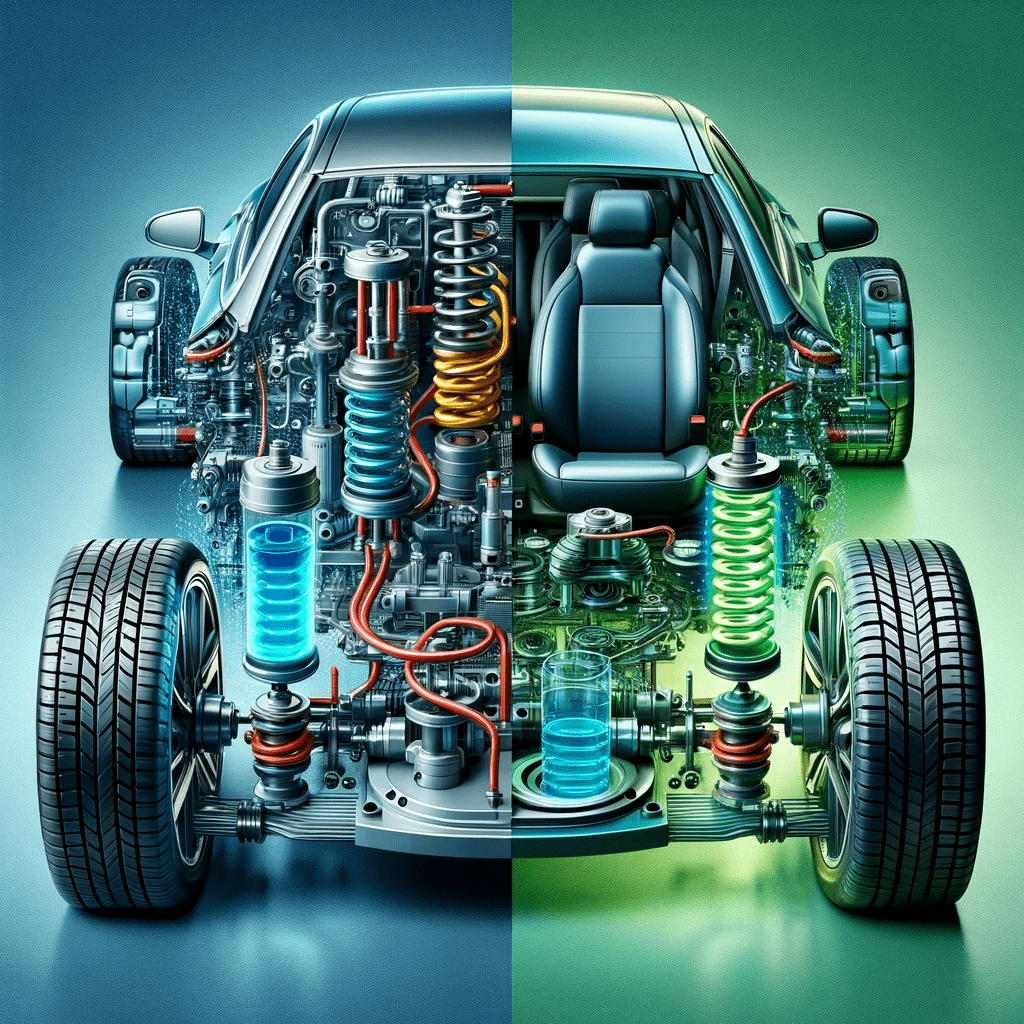Key Takeaways
| Aspect | Hydraulic Suspension | Magnetic Suspension |
|---|---|---|
| Technology | Uses fluid to absorb shock | Utilizes magnetic fields for damping |
| Ride Comfort | Generally smoother and more adaptable | Offers precise control, can be stiffer |
| Performance | Excellent for heavy-duty applications | Superior in high-speed performance |
| Maintenance | Requires regular maintenance | Lower maintenance due to fewer moving parts |
| Cost | Often less expensive initially | Typically more costly but offers high-tech features |
| Suitability | Ideal for everyday and off-road vehicles | Best for performance and luxury vehicles |
When it comes to enhancing your car’s performance, choosing the right suspension system is crucial. Two popular options are hydraulic suspension vs magnetic suspension. Each system has its unique features and benefits, making them suitable for different driving needs and preferences.

Hydraulic Suspension: Fluid Power for Smooth Rides
Hydraulic suspension systems use a fluid-based mechanism to absorb shocks and vibrations. Here’s what makes them stand out:
- Comfort: Hydraulic systems provide a plush, smooth ride. They’re excellent at absorbing road irregularities, making them ideal for daily drivers and off-road vehicles.
- Customizability: You can easily adjust the stiffness and height, catering to various driving conditions. This flexibility is a boon for those who prioritize adaptability.
- Maintenance: While generally reliable, hydraulic systems do require regular maintenance to ensure optimal performance.
Real-Life Example
Consider the heavy-duty trucks often seen navigating rugged terrain; many utilize hydraulic suspension for its robustness and adaptability.
Magnetic Suspension: Cutting-Edge Control
Magnetic, or magnetorheological, suspension systems use magnetic fields to adjust damping. They offer:
- Precision: These systems respond instantaneously to road conditions, providing unmatched control and stability, especially at high speeds.
- Low Maintenance: With fewer moving parts compared to hydraulic systems, magnetic suspensions often require less upkeep.
- Cost: The advanced technology in magnetic suspensions typically makes them more expensive. They’re often found in high-performance and luxury vehicles.
Real-Life Example
High-end sports cars, known for their blistering speeds and razor-sharp handling, frequently employ magnetic suspension for its precision and performance.
Hydraulic vs magnetic suspension: Comparison Table
| Factor | Hydraulic Suspension | Magnetic Suspension |
|---|---|---|
| Ride Comfort | Smooth and adaptable | Precise, can be firm |
| Performance | Excellent for heavy loads | Superior at high speeds |
| Maintenance Needs | Regular check-ups needed | Generally lower maintenance |
| Cost Implications | More affordable | Higher initial cost |
| Ideal For | Everyday and off-road use | Performance vehicles |
Both hydraulic and magnetic suspensions have their merits. Your choice should depend on your vehicle type, driving habits, and performance expectations. While hydraulic systems offer versatility and smoothness, magnetic suspensions excel in high-speed precision and low maintenance needs.
Explore more about performance shock absorbers and air suspension benefits to further enhance your vehicle’s capabilities. Remember, the right suspension upgrade can transform your driving experience, whether you’re hitting the racetrack or cruising down country roads.

Frequently Asked Questions (FAQs)
Q1: What is the main difference between hydraulic and magnetic suspension systems?
A1: Hydraulic suspension systems use fluid to dampen shocks, providing a smoother ride, while magnetic suspensions utilize magnetic fields to adjust damping, offering precise control and responsiveness, especially at high speeds.
Q2: Is magnetic suspension worth the extra cost?
A2: If you prioritize performance, especially in high-speed scenarios, and desire advanced technology with lower maintenance needs, magnetic suspension can be worth the extra cost. It’s commonly found in luxury and performance vehicles.
Q3: Can hydraulic suspension be used in performance cars?
A3: Yes, hydraulic suspension can be used in performance cars, especially those used in off-road conditions or where a more adaptable ride quality is desired. However, for high-speed performance, magnetic suspension is often preferred.
Q4: How often do magnetic suspensions need maintenance?
A4: Magnetic suspensions generally require less maintenance than hydraulic systems due to fewer moving parts. However, it’s still important to have regular check-ups to ensure optimal performance.
Q5: Can I upgrade my car from a hydraulic to a magnetic suspension system?
A5: Upgrading to a magnetic suspension system is possible but can be complex and costly. It requires significant modifications and should be done by a professional. Before deciding, consider the benefits of different suspension mods.
Q6: Are there any driving conditions where hydraulic suspension is more beneficial than magnetic?
A6: Hydraulic suspension is often more beneficial in off-road conditions or for heavy-duty use, where its adaptability and capacity to absorb large shocks come into play. It’s also more suited for everyday driving due to its smoothness.
Q7: How does magnetic suspension improve a vehicle’s handling?
A7: Magnetic suspension improves handling by rapidly adjusting to road conditions, providing a stable and controlled ride. This is especially noticeable during sharp turns, sudden stops, and at high speeds.
Q8: Is hydraulic suspension cheaper to repair than magnetic suspension?
A8: Generally, hydraulic suspension systems are cheaper to repair due to their simpler and more common technology. Magnetic suspensions, while less prone to frequent repairs, can be more expensive when issues arise.